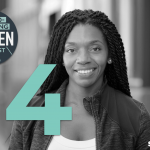Editor’s Note: A version of this post was originally published on B The Change.
In 2017, Vancouver-based venture capital firm Renewal Funds exited four companies to mission-aligned partners. Three of those exits were B Corps, and one of those B Corps was organic, environment-focused, fair-trade foods company Alter Eco. The company uses its products to support sustainable farming practices, farmer co-ops, and agroforestry projects in the communities from which it sources ingredients.
In our continued learning of how to sell without selling out, we share insights from Renewal Funds’ partner Paul Richardson and Alter Eco co-founders Mathieu Senard and Edouard Rollet.
What does it look like to sell without selling out, from a fund manager’s perspective? Specifically, can you describe one of the exits from last year?
Paul Richardson: We made our first investment in organic, fair-trade foods company Alter Eco back in 2010, and the company has grown its revenues approximately 10 times over the time that we’ve been invested. I was chair of that company for the last three or four years, and we’ve had a board member through the whole piece. Alter Eco is a B Corp and represents exactly what a B Corp should be — started by people who were smart, mission-first people who care about building a product that matters.
Along with our co-investors in the 2010 series A round and the company management, we decided it was the right time to find a buyer who could inject new capital and take it to the next level. All of us felt aligned in the idea that there was a next step that the company could take, and a larger source of capital would be helpful.
We started the process by talking to a number of bankers and made it clear that mission was going to be a key element, and that any bid that was just financial would be very difficult to consider. We as company and board went out to look for people who were aligned that way. We found a buyer, NextWorld, that has created an Evergreen fund. Alter Eco is the first purchase in that fund. The buyers want to make sure that Alter Eco remains a B Corp through the process.
NextWorld Evergreen is a large fund with a lot of capacity to build the brand. They are committed to the brand because of its organic and fair-trade values, and they committed to keeping all employees who wished to remain with the company through the transition. The company is staying in the premises that it was occupying, and the company is just expanding its offerings within the organic and fair trade space.

How does this exit support Alter Eco’s mission? Why was it a good fit for your company, and what goals do you have for the business next?
Mathieu Senard: Since our early beginnings as a small, fair-trade store in la Bastille, Paris, in 1998, Alter Eco has always strived to revolutionize the way we consume and the way we do business. Thinking outside of the box and finding new ways to work that align with our mission is our goal. When we started looking for an exit back in 2014, we thought there should be another way. Right now, for organic and natural food companies, the choice is either:
- Being integrated into a large food conglomerate, which means losing your team, your culture, and eventually your mission; or
- Going with traditional private-equity funds, who have a timeline for return that rarely exceeds five or seven years.
Edouard Rollet: Most of Alter Eco’s decisions are driven by long-term goals, such as investing in sustainable packaging, supporting large-scale reforestation in our farming communities, and a high bar on quality assurance, may not always align with a strategic or private equity partner. We looked, explored, and met with tons of people to solve this conundrum. Then we cracked the code.
For a company like Alter Eco, we believe that the NextWorld Evergreen fund — the length of the fund is 100 years and renewable — funded by limited partners (LPs) and partners aligned with our mission, is the right path for our future. We all know millennials want ethical snacks. We know that everybody hates throwing packaging in the landfill. We know people care about where their food comes from. But we know creating these products and systems costs money and the realization of this investment will take time and patience. Traditional investment formats are just not tailored to this new paradigm. Mission-aligned Evergreen funds are. This is a revolution.
Read the whole interview at B The Change.





